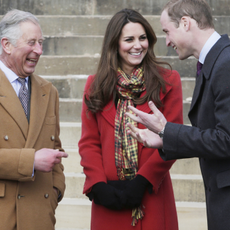Why that Tory ‘N’ word slur means we need to call out racism now more than ever
Is it enough that Anne-Marie Morris was just suspended?


Is it enough that Anne-Marie Morris was just suspended?
Yesterday, the news was heavy with headlines about Conservative MP, Anne-Marie Morris, who described Brexit without a proper deal as 'the real n****r in the woodpile.'
The expression originated from late 19th century America to describe slaves who hid in piles of firewood while escaping to Canada but it's also used to mean (according to Wikipedia) 'some fact of considerable importance that is not disclosed - something suspicious or wrong.'
But, does it really matter where the origin of this line comes from? We all know it's wrong to reference such a cruel, and unforgivable, part of human history in such a blasé way - and we need to continue to call out racism.
The MP for Newton Abbott in Devon's comment has unsurprisingly reduced Theresa May's majority further to 12 after she said: 'Now I’m sure there will be many people who’ll challenge that, but my response and my request is look at the detail, it isn’t all doom and gloom. Now we get to the real n----r in the woodpile which is in two years what if there is no deal?'
MPs from the Conservative party have been quick to state that Anne-Marie's remark are not reflective or representative of anyone else's values or beliefs and that an apology is simply not good enough. And, Anne-Marie has since said that the comment was 'totally unintentional' but such offensive phrases need to be taken out of our vernacular and consciousness in general.
And, this is something that resounds with me too much. Having grown up in a mixed race household (my mother is Belgian and my father is Chinese), every day racism remains too common.
Marie Claire Newsletter
Celebrity news, beauty, fashion advice, and fascinating features, delivered straight to your inbox!
Back in 1993, Tory MP John Townend accused Labour of 'wanting to turn the UK into a 'mongrel race' on live TV. I was four at the time but that didn't stop me being called a 'mongrel' at school years later, or being heckled by people making ignorant East Asian impressions or meeting a woman last year who decided to refer to me as 'chinky.'
Why is this language even still in existence? It makes no sense to me.
It's fine to be curious of people's cultural heritage but it's paramount to not identify them or stereotype them as such. We are who we are, not where we're from.
And to now hear a word, and expression, attached to a time of such mistreatment and violation of basic human rights, used by the people who represent our country is scarier than ever.
-
 Zendaya's reaction to awkward kissing question during Challengers interview has gone viral
Zendaya's reaction to awkward kissing question during Challengers interview has gone viral'Uncomfortable' doesn't begin to cover it
By Iris Goldsztajn
-
 Prince William feels 'immense responsibility' amid Kate and Charles cancer diagnoses
Prince William feels 'immense responsibility' amid Kate and Charles cancer diagnosesHe has a lot on his plate
By Iris Goldsztajn
-
 Taylor Swift just teased a 'timetable' for her new album release
Taylor Swift just teased a 'timetable' for her new album releaseThe wait is torture
By Iris Goldsztajn
-
 Why we all need to call out racism
Why we all need to call out racismIt's time for all of us to stand up to everyday racism
By Anita Bhagwandas
-
 Why now is the time to shout about racism
Why now is the time to shout about racismAs President Trump issues a travel ban on nationals from seven Muslim-majority countries and bans Syrian refugees from entering the US indefinitely, entrepreneur Heidy Rehman explains why Trump and Brexit should encourage us all to #calloutracism
By Marie Claire